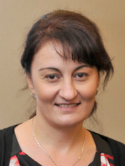Breast carcinoma with 21-gene recurrence score lower than 18: Rate of locoregional recurrence in a large series with clinical follow-up Journal Article
| Authors: | Turashvili, G.; Brogi, E.; Morrow, M.; Dickler, M.; Norton, L.; Hudis, C.; Wen, H. Y. |
| Article Title: | Breast carcinoma with 21-gene recurrence score lower than 18: Rate of locoregional recurrence in a large series with clinical follow-up |
| Abstract: | Background: The 21-gene recurrence score (RS) assay determines the benefit of adding chemotherapy to endocrine therapy for patients with early stage, estrogen receptor (ER)-positive, HER2-negative breast cancer. The RS risk groups predict the likelihood of distant recurrence and have recently been associated with an increased risk of locoregional recurrence (LRR). This study analyzed clinicopathologic features of patients with low RS and LRR. Methods: In our institutional database, we identified 1396 consecutive female patients with lymph node negative, ER +/HER2-invasive breast carcinoma and low RS (< 18) results, treated at our center from 2008 to 2013. We collected data on clinicopathologic features, treatment and outcome. Results: The median patient age was 57 years (range 22-90). The median tumor size was 1.2 cm (range 0.3-5.8). Overall, 66.6% (930/1396) women were treated with breast conserving surgery (BCS) and radiation therapy, 3.4% (48/1396) with BCS alone, 29.7% (414/1396) with total mastectomy, and 0.3% (4/1396) with total mastectomy and radiation therapy. Most patients (84.8%; 1184/1396) received endocrine therapy alone, 12.1% (169/1396) were treated with chemotherapy plus endocrine therapy, and only 3.1% (43/1396) received no systemic therapy. At a median follow-up of 52 months, 0.9% (13/1396) of patients developed LRR. Sites of LRR included the ipsilateral breast (n = 8), chest wall (n = 3), axillary node (n = 1), and internal mammary node (n = 1). All patients with LRR had negative resection margins at the initial surgery. The rate of LRR in patients treated with adjuvant endocrine therapy alone was 0.7% (8/1184). All eight patients received standard local treatment. Three patients had lymphovascular invasion but no other significant risk factors for LRR were identified. Conclusions: Our study of node negative, ER+/HER2-breast cancer patients with low RS observed extremely low rates of LRR: 0.9% (13/1396) in the whole cohort and 0.7% (8/1184) in patients treated with endocrine therapy alone. As the largest series to date, we report detailed clinicopathologic data and clinical outcomes of this cohort and provide a comprehensive characterization of patients who developed LRR. |
| Keywords: | chemotherapy; breast cancer; assay; end-points; recommendations; impact; women; gene-expression; decision-making; adjuvant breast; locoregional recurrence; early stage; recurrence score assay; low risk; 21-gene; cancer trials; estrogen receptor positive |
| Journal Title: | BMC Cancer |
| Volume: | 18 |
| ISSN: | 1471-2407 |
| Publisher: | Biomed Central Ltd |
| Date Published: | 2018-01-06 |
| Start Page: | 42 |
| Language: | English |
| ACCESSION: | WOS:000419671100003 |
| DOI: | 10.1186/s12885-017-3985-y |
| PROVIDER: | wos |
| PMCID: | PMC5756373 |
| PUBMED: | 29304773 |
| Notes: | Article -- Source: Wos |
Altmetric
Citation Impact
BMJ Impact Analytics
Related MSK Work










